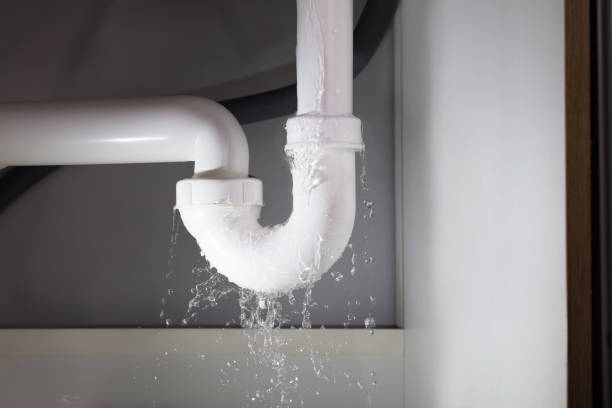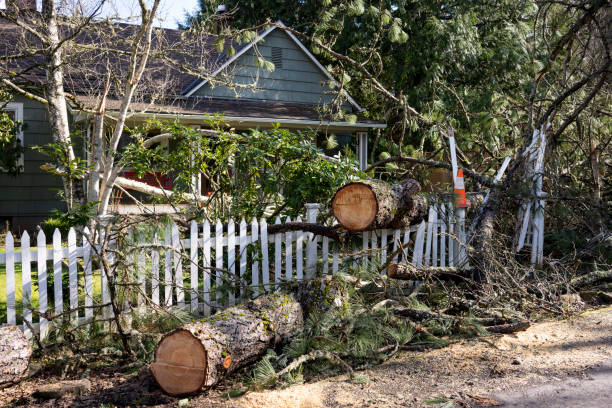Water leaks and storm damage are unexpected, messy and create an unwanted stress on your household. Preparing for them ahead of time can help ease some of that stress.

Water Leaks
Some common causes of water leaks are: cracked pipes, malfunctioning appliances, loosened connections, worn out seals, and freezing temperatures. Although it is difficult to know when a pipe or appliance will leak, regular inspections of old pipes and keeping an eye on aging appliances can help prevent water leaks in your home. As pipes age, they will show visible signs of rust and corrosion. Any slow leak needs to be addressed promptly by a plumber. Appliances that use water, such as water heaters, washing machines, ice makers, refrigerators, and dishwashers, will be at a higher risk to develop leaks as they age. When appliances near their 10-year mark their seals can become old and worn. If this occurs or the appliance is not performing as normal, it might not be a bad idea to call an appliance repair professional to inspect and service the appliance.
We live in a state that has extreme weather–and with this extreme weather comes freezing temperatures. Freezing temperatures can cause pipes to burst. However, this can be avoided with proper insulation and allowing faucets to drip during freezing weather. The small cost for a dripping faucet is far less compared to the costly repairs from a busted frozen pipe. In addition, water damage to your home can displace your family for weeks or months. Addressing leaks promptly, routine maintenance, and preventive steps can help your family avoid being displaced due to a significant water loss.
Should you be one of the unfortunate ones that does have a busted pipe or water leak, it is important to know what to do. Know ahead of time where the main water supply shut off to your home is. Turning off the main water supply is the first and most important step to take if there is a leak. Once you shut off the water supply, you will need to contact a plumber or appliance repair professional to locate the leak and do the proper repairs. The next step will be to start cleaning up the water immediately. A local and reputable water mitigation company can assist with the water cleanup. Friends and family that have had recent home repairs done are a good source to find a reputable water mitigation company. Your Farm Bureau Insurance agent is another great resource to help answer questions and provide additional information regarding what water damage your policy covers.

Fallen Trees and Storm Damage to Roof
Storms are unpredictable, but some of the resulting damage can be avoided. Wind and trees near your home are not a good combination, so a little preventive care can avoid a storm turning into a disaster. Keep an eye out for dead trees near your home and have them removed promptly. In addition, keep trees near your home trimmed and remove any leaning or shallow root trees such as pines. Often a little routine maintenance and a preventive mindset can help avoid a major disaster.
What do you do if a storm topples a tree onto your home? First, remove the fallen tree from your home. You can do this yourself or call a local tree removal service/roofer. Once the tree is removed from your home the roofer/contractor needs to cover your roof to prevent additional interior damage. Depending on your policy and the cause of the damage, insurance will often provide help to pay for the removal of the tree and the covering of your roof.
Always try to call a local tree removal service or local roofer/contractor to get the tree off your home. It’s also a good idea to agree to a reasonable price up-front and in writing if possible. Beware of door-to-door solicitors after a storm or anyone asking for payment for the entire job up-front. Verify that the contractor is licensed and insist upon a contract in writing. Friends and family that have had recent home repairs done are a good source to find a reputable contractor/roofer. Your Farm Bureau Insurance agent is another good resource to help answer questions and provide additional information regarding what storm damage your policy covers.
If something does happen to your home and you need to file a claim, please call our toll-free number any time at 1-866-275-7322.
Article provided by: Chris Vandergriff, Claims
